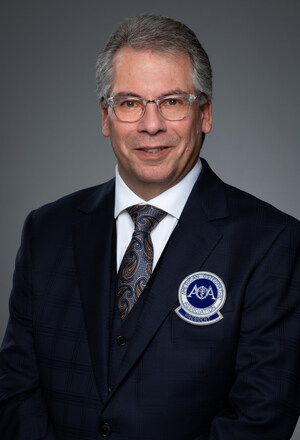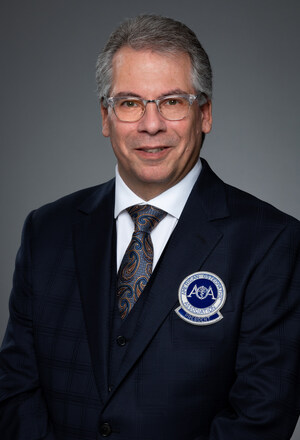
Grandma and Grandpa Under the Influence?
Physicians Need to Discuss Substance Abuse with Older Patients
SAN FRANCISCO, Oct. 27 /PRNewswire-USNewswire/ -- Loneliness coupled with pre-existing alcohol and drug habits are among the reasons why older adults turn to controlled substances in their golden years. Since seniors often take prescription medication for chronic illnesses, it is important they disclose any drug or alcohol consumption to their physicians in order to avoid any interactions or complications in treatment.
Stephen M. Scheinthal, DO, an AOA board-certified psychiatrist from Stratford, N.J., recently discussed the growing problem of substance abuse in the senior population during a presentation at the American Osteopathic Association's (AOA) 115th Osteopathic Medical Conference & Exposition, known as OMED 2010 Unified, in San Francisco.
"Substance abuse doesn't know any boundary of age," Dr. Scheinthal says. "Typically, seniors do not drink to get drunk or take drugs to get high. More likely they are lonely or they partake in these substances out of habit."
Undisclosed drug or alcohol use could result in complications, especially if patients experience withdrawal symptoms if they become hospitalized. "If a physician does not know his patient has a cocaine habit, he might prescribe medication to treat a patient for being restless or jittery because that is what the symptoms seem to indicate without realizing the patient actually is going through withdrawal symptoms," Dr. Scheinthal explains.
Dr. Scheinthal recommends family members watch for the following signs to see if an older relative might have a substance abuse problem:
- Changes in sleep patterns and/or appetite that cannot be attributed to other reasons.
- Increased falling.
- Frequently changing physicians or "doctor shopping" to get multiple prescriptions and having those prescriptions filled at multiple pharmacies.
- Suddenly becoming irritable or agitated.
- Periods of confusion.
- Empty liquor bottles in the garbage or recycling bucket, which can be an indicator of someone drinking.
The American Osteopathic Association (AOA) proudly represents its professional family of more than 70,000 osteopathic physicians (DOs); promotes public health; encourages scientific research; serves as the primary certifying body for DOs; is the accrediting agency for osteopathic medical schools; and has federal authority to accredit hospitals and other health care facilities. More information on DOs/osteopathic medicine can be found at www.osteopathic.org.
SOURCE American Osteopathic Association






Share this article